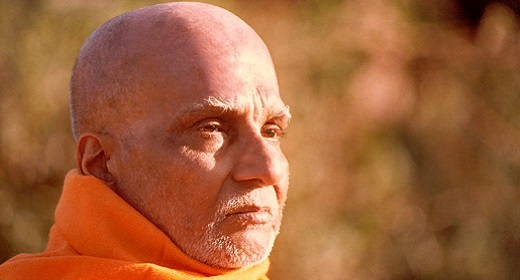Learn to rejoice in the good fortune of others and your own happiness multiplies – it’s the best cure for envy. by Sharon Salzberg: I recently visited a friend in Malibu, a spectacularly beautiful beach town north of Los Angeles. As I walked along the sand, I was captivated by the warm breeze, the sound of the ocean, and the light glinting off the water. Glancing at the luxurious houses lining the shore, I imagined that this was as good as it gets.
by Sharon Salzberg: I recently visited a friend in Malibu, a spectacularly beautiful beach town north of Los Angeles. As I walked along the sand, I was captivated by the warm breeze, the sound of the ocean, and the light glinting off the water. Glancing at the luxurious houses lining the shore, I imagined that this was as good as it gets.
Then the rains came. Hour after hour, day after day, rain pounded down. My friend’s garage roof leaked. The stuff she was storing there all had to be moved. When the storm was over, battalions of ants marched through her kitchen. In the midst of the chaos, a national news correspondent called and asked if she could come out with a television crew to film the scene. Puzzled, my friend asked, “Why?” The woman replied, “Well, all around the country people get excited if they hear that something’s gone wrong in Malibu.”
We relish others’ misfortunes when we begrudge them their apparent happiness. Hearing about another person’s success, we might think, “Oooh. I would be happier if you had just a little bit less going for you right now. You don’t have to lose everything, of course; just a slight tarnishing of that glow would be nice.” We react as though good fortune were a limited commodity, so the more someone else has, the less there will be for us. As we watch someone else partake of the stockpile of joy, our hearts may sink-we’re not going to get our share. But someone else’s pleasure doesn’t cause our unhappiness-we make ourselves unhappy because our negativity isolates us.
An alternative to feeling painfully cut off is to learn to rejoice in the happiness of others. In Buddhist teaching, this is called sympathetic joy. The term is unusual; sympathy is commonly used in the sense of feeling bad for others. Learning to share their joy revolutionizes our thinking about where we can find happiness. Usually we rejoice in what we get, not in what others have. But sympathetic joy is a practice of generosity, and giving isn’t just about doing someone a favor-it makes us feel better.
One doorway to sympathetic joy is compassion. Life is so fragile, with its volcanic shifts from pleasure to pain, from ease to difficult confrontations, from getting what we want to watching what we just got begin to fade away. We go up and down, all of us. Vulnerability in the face of constant change is what we share, whatever our present condition. If we remember that even people who have more than we do suffer, we will feel closer to them.
A friend told me about her envy of a woman who had it all. The “lucky” one had a good relationship, was a mountain climber and champion swimmer, and, because of her job, was invited to lecture at distinguished universities. My friend was single; she was challenged by something as simple as a long walk; she worked without prestige or glamour. And she felt scalded by jealousy whenever she thought of this other woman.
Her envy hurt so much that she decided to try a practice of compassion to reach sympathetic joy. She recalled the hardships in this other woman’s life: Her brother was an alcoholic, her father had Alzheimer’s, and she was worried about money. Seeing the bigger picture not only enabled my friend to view the other woman in a new way, it allowed her to appreciate the joy in her own life. As her perspective opened, she let go of old assumptions about how deprived she was. Now this woman no longer seemed so alien, and my friend could feel a burgeoning and genuine connection to her. The bindings of envy loosened, and she felt joy for herself and joy that the other woman had good things in her life. Instead of seeing someone else’s happiness as a threat to her own, it actually became her own.
Another way to reach sympathetic joy is through meditation. Sitting comfortably with your eyes closed, silently recite your intention to rejoice in the happiness of others. Phrases often used are “May your happiness and good fortune not diminish. May they increase further and further.” You can offer the phrases to different people in your life, one by one. Start with someone you care about. After a few minutes, switch your attention to a person you’re not as close to. Then focus on someone who’s having a hard time. Compassion for her pain can open your heart, and celebrating even the small degree of happiness she might feel can help both of you. End the meditation by offering the phrases in a global way: “May the happiness and good fortune of all increase further and further.”
As the Dalai Lama, spiritual leader of Tibet, puts it, there are so many people in this world, it simply makes sense to make their happiness a source of our own. Then our chances of experiencing joy “are enhanced six billion to one,” he says. “Those are very good odds.”







































